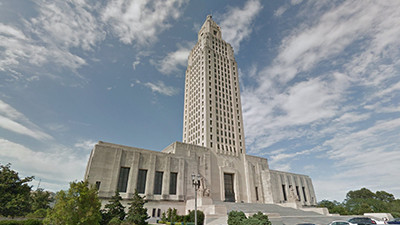
Lawmakers in Louisiana have passed a measure that would allow local governments to prevent access to public records if they can prove they could hurt economic development efforts.
House Bill 461 would allow a city mayor, parish president or local government executive to declare any public records confidential if they determine their public release would have a detrimental effect on an active business negotiation. The bill also allows the company or person negotiating with the government to request confidentiality.
The bill is awaiting a decision by Gov. Jeff Landry.
Local governments would be required to publish a notice online with general information about each negotiation, but the notice would not have to include details such as the name of the company, the dollar amounts being negotiated and the prospective project site.
Louisiana state Rep. Steven Jackson, D-Shreveport, who sponsored the bill, said it would help Louisiana stay competitive and “strengthen the hand” of local governments when working to bring businesses to their communities.
“Once those negotiations are complete, those documents will be made readily available to the public,” Jackson said.
The bill originally passed the Louisiana state house in April. The house approved Senate amendments to the bill last week that require the project to be valued at $5 million or greater and create 15 permanent jobs for manufacturing or distribution centers or at least 25 permanent jobs for digital media, headquarters research and development or inbound call center operations.
The Senate also amended the bill to require that records of local government expenses related to economic development negotiations remain public, with the exception that a local chief executive officer could redact any identifying information that would expose people related to a firm in talks with the government.
The amended bill would also prohibit the local chief executive from entering into an agreement without an affirmative vote of the local legislative body consistent with the state’s open meetings law.
Local governments in Louisiana would have five days to determine whether to keep records confidential or inform the public.
Non-disclosure agreements between local governments and private businesses during economic development negotiations are not unusual in the U.S. Economic development projects are typically given code names and discussed during executive session at government meetings. Information regarding the business’s identity or any economic development incentives offered is only disclosed after action is taken in open court.
However, dissidents of the Louisiana law believe officials could use it loosely to prevent the release of any records to the public.
First Amendment attorney Scott Sternberg, who represents the Louisiana Press Association, is among those who have decried the bill as an attempt to restrict the public’s access to information.
Sternberg spoke in opposition to the bill at a Senate committee hearing, arguing that local governments would be able to hide any records they want simply by saying they’re related to economic development.
“There is an economic development angle to everything that a council does, a parish attorney’s office does, a clerk’s office does,” Sternberg said, adding that allowing the public to see government business negotiations can encourage healthy competition and lower tax incentives.
Other states have also recently passed laws restricting access to information that was previously public. They include:
Utah, which passed a bill this year removing public and elected officials’ calendars from public record
Florida, which passed a law shielding the governor’s travel records
Kentucky, which introduced a bill that would redefine what constitutes a public record.
Arizona, which implemented rule changes in 2023 that allow lawmakers to delete communications after 90 days.
Photo courtesy of downtownbatonrouge.org
The post Bill to restrict public records access awaits Louisiana governor’s signature appeared first on Government Market News.
